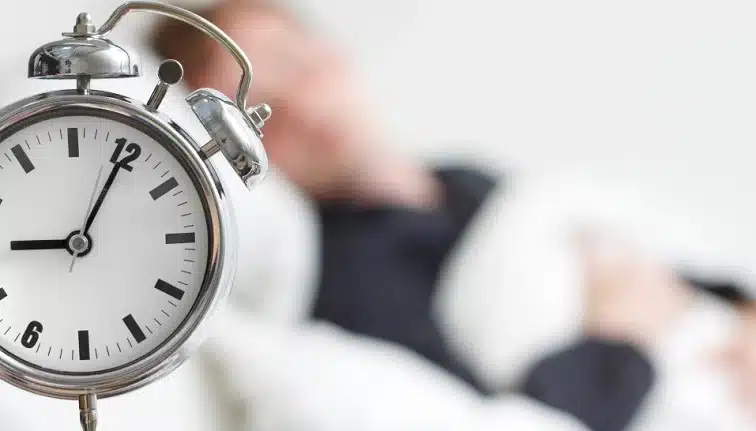There are many myths about people’s sleeping habits. Dr Debanjan Banerjee attempts to bust major myths about sleep and answers how sound sleep is the silent secret to health
Sleep is one of the most primitive and basic requirements of life. Numerous studies and long-drawn research have simplified some aspects of its function and nature, though a lot of it yet remains elusive. The body rests during sleep and ‘restores’ its energy and functions. The energy consumption in various organs are minimal and the brain conserves its nerve cells and connections to be active again when awake. Adequate quantity and quality of sleep determine our daily schedule, activity levels, attention, memory, learning and even our life-span.
Our body-clock regulates the ‘circadian rhythm’ which is necessary for all the physiological processes in the body, which in turn depends on a good-night sleep. In fact, every single function of the human body depends on a ‘healthy’ sleep and ‘sleep deprivation’ or ‘restriction’ can have a myriad of short-term and long-term harmful effects on the body and mind.
Today, globalisation, competition, stress-laden lifestyle and technology have carved into our lives like a double-edged sword. A negative consequence of which is our natural sleep duration being deliberately compromised by external demands of work and leisure. It is very important to understand the fact that ‘healthy’ sleep does not depend on any particular duration or environment. It is not just the absence of insomnia or other sleep-related disorders. It basically means the natural pattern of sleep that our body holds for us at night, without being interfered in the long-term. As the epidemic of ‘sleep deprivation’ rises in peak, we get plagued by a multitude of sleep-related myths and misinformation that further add to the burden, leading to increased and harmful use of over-the-counter ‘sleeping pills’.
Here are some common myths about sleep, know why these myths are depriving you of your precious sleep:
Myth 1: A certain amount of sleep is necessary daily. You should try to achieve it at all costs.
Reality: This is the commonest of all ‘beliefs’ that we come across. People spend extra time in bed simply to get the desired duration of sleep that they ‘feel’ is necessary.
There is no such duration.
There are both short-sleepers (4-5 hours/day) and long-sleepers (8-10 hours/day). On an average, a healthy human needs 6-8 hours of sleep every day, preferably at night. However, these figures vary and it is best to follow the natural individualised pattern, rather than striving to develop any ‘set’ patterns of sleep. That increases the bed-time, creates anxiety and further disturbs sleeping time.
Myth 2: It is good to read books, listen to music or have a drink before sleep.
Reality: All these activities stimulate the brain and impair the quality of sleep. Any drink (alcoholic or non-alcoholic) can disturb sleep. It is rather advised to have a gap of an hour between dinner and bed-time and a light walk can be advised post-dinner, that helps sleep.
Myth 3: Try and Try unless you succeed (to sleep)!
Reality: This is a very disturbing mistake all of us make. Sleep is not a fight! Struggle would not help, rather increase the apprehension and further keep you awake. Sleep is a natural process and it needs the body and mind to be at peace. If you are on the bed for a while and still cannot sleep, just get up and out of bed, distract yourself for a while, get fresh, empty your bladder and retire to bed again. Similarly, if you have got up really early, DO NOT forcibly try to sleep till late. Just get up and start the day. The next night body will compensate your sleep naturally. The above facts are part of sleep hygiene (mentioned later) and especially applicable to those who have chronic sleep disturbances.
MYTH 4: Using phones/tabs/laptops on a bed when I cannot sleep.
Reality: This is a challenge we face both with the millennials or the Gen-Z. Immediate resorting to technology seems to be the easiest solution to treat insomnia. It is not! The vicious cycle sets up when every time you are awake, you feel the need to check your device for communication, which sets your brain into a continuous ‘alert’ resulting in chronic anxiety, restlessness and sleep disturbance. Once this turns to a pattern, it is very difficult to break.
MYTH 5: If you are not able to sleep, try sedatives or alcohol.
Reality: Sedatives (like alprazolam, diazepam, zolpidem, etc.) are one of the most sold over-the-counter drugs. Reasons being many, the most relevant are our own habit, harmful suggestions and decision making, inadequate implementation of legal licensing and often, the lacklustre attitude of the pharmacists. No one person is to blame here. Any kind of sedative medication, without prescription, might get you to sleep for a few days but eventually can be habit-forming, addictive with more and more doses needed to get the desired result. It can lead to a whole lot of side-effects, long-term damage to the kidney and liver and often sleep tends to be totally dependent on them. The same holds true for any alcoholic beverage if used solely for sleep.
MYTH 6: The elderly should sleep more and better.
Reality: It might sound odd, but this is what I hear most while consulting. Quite contrary to the children, the elderly have more fragmented sleep and poorer sleep quality. They tend to sleep early in the evening and get up early. Also, recurrent naps are more common. This is the normal ageing pattern and does not need any treatment. Sleep inducing medications should be maximally restricted for them unless the doctor examines and prescribes them for a reason.
(The author Dr Debanjan Banerjee is a Geriatric Psychiatrist at NIMHANS, Bengaluru and also a member of First Check, an award-winning fact-checking initiative of Health Analytics Asia. )
(This article reflects views of the author and intends to educate on the importance of sleep and is strictly not medical advice. Please consult your physician for any sleep-related problems.)

















